Abstract
We assessed the efficacy of several procedures for reducing the rate of eating responses during mealtime by three institutionalized mentally retarded clients. A time-based (15 s) response interruption procedure was implemented which resulted in little change in eating responses for 2 of 3 subjects. A spaced-responding DRL 15-s procedure resulted in decreases in eating responses to target levels only after a prompting procedure was added. Procedures were evaluated using a multiple baseline across subjects design with assessment of generalization to nontreated meals. A change in eating behavior during breakfast occurred only after direct training in the breakfast setting. Maintenance data were collected at 1- and 5-month follow-up periods.
Full text
PDF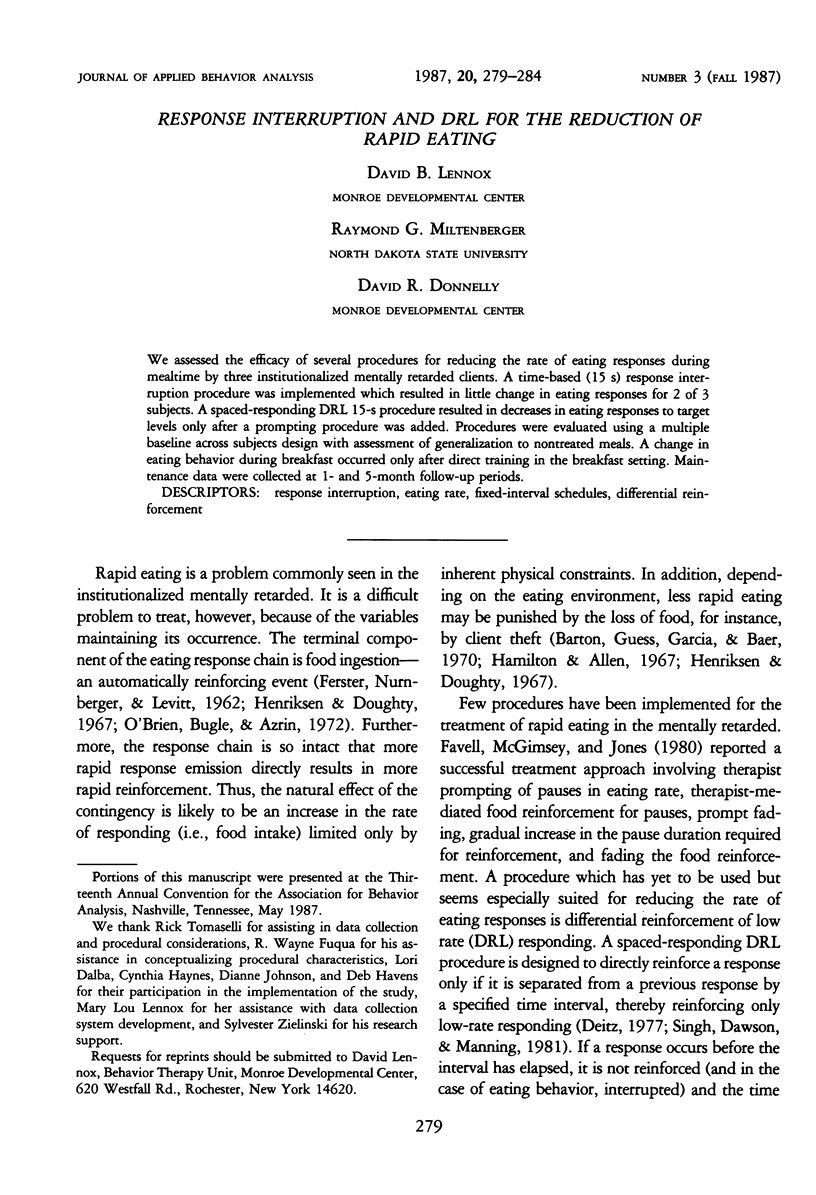
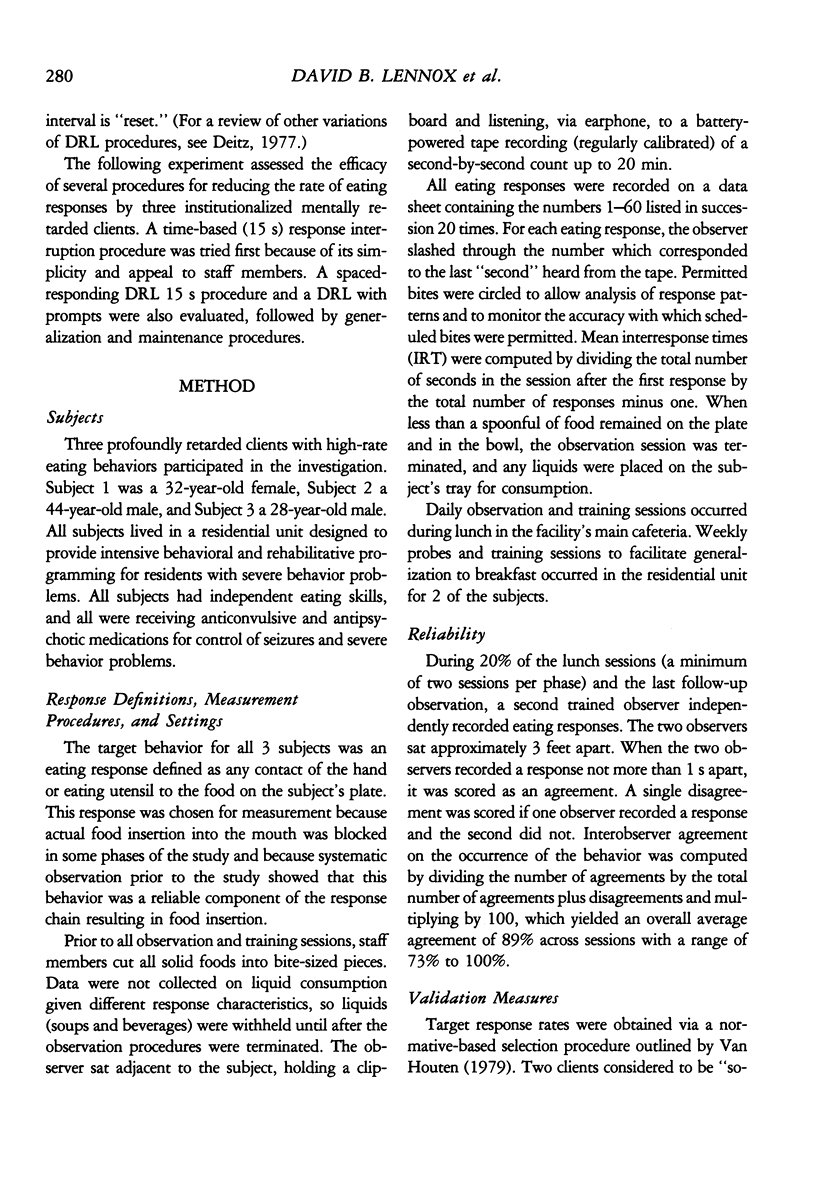
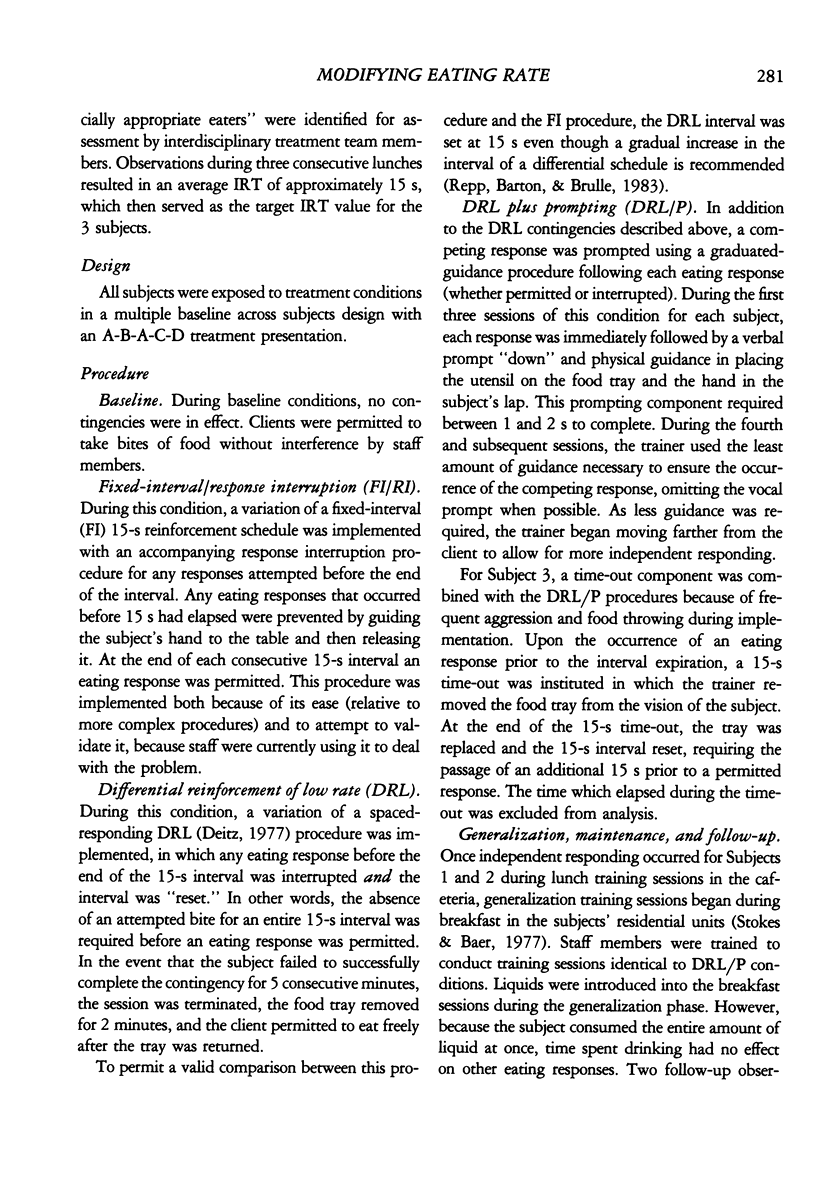
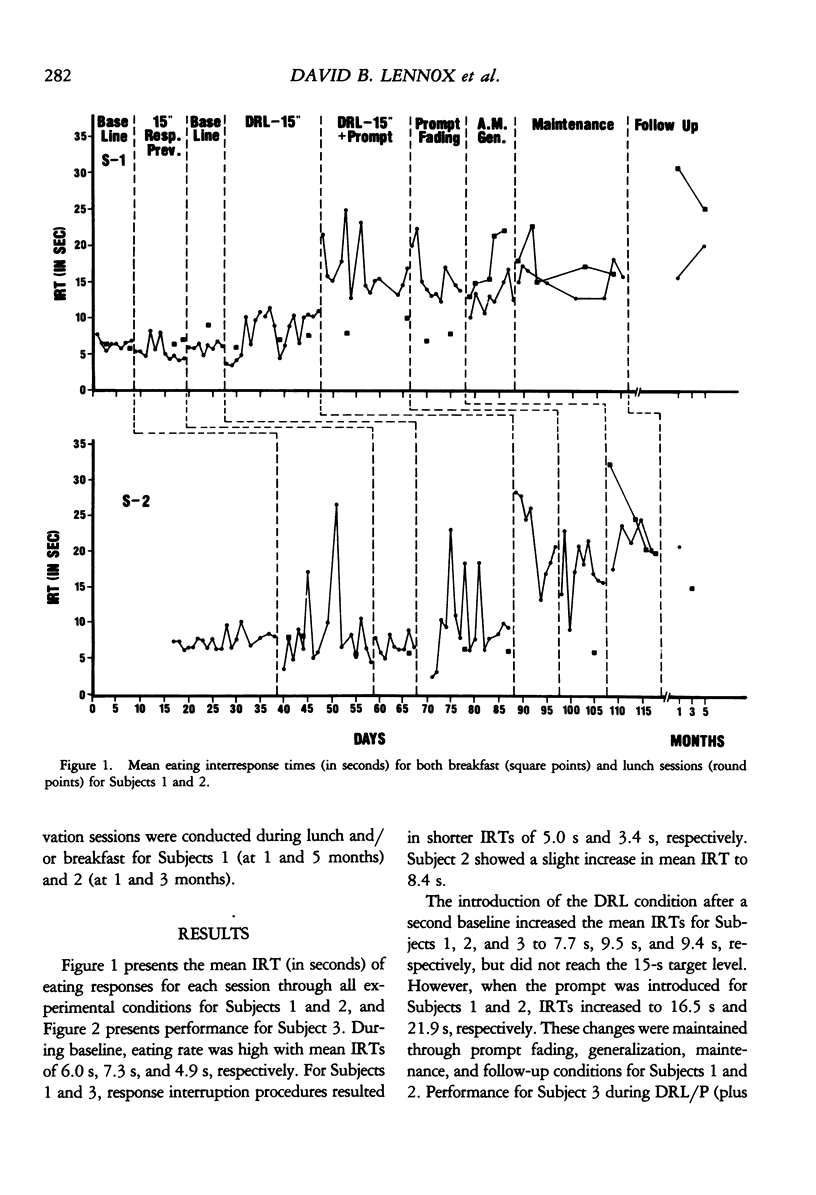
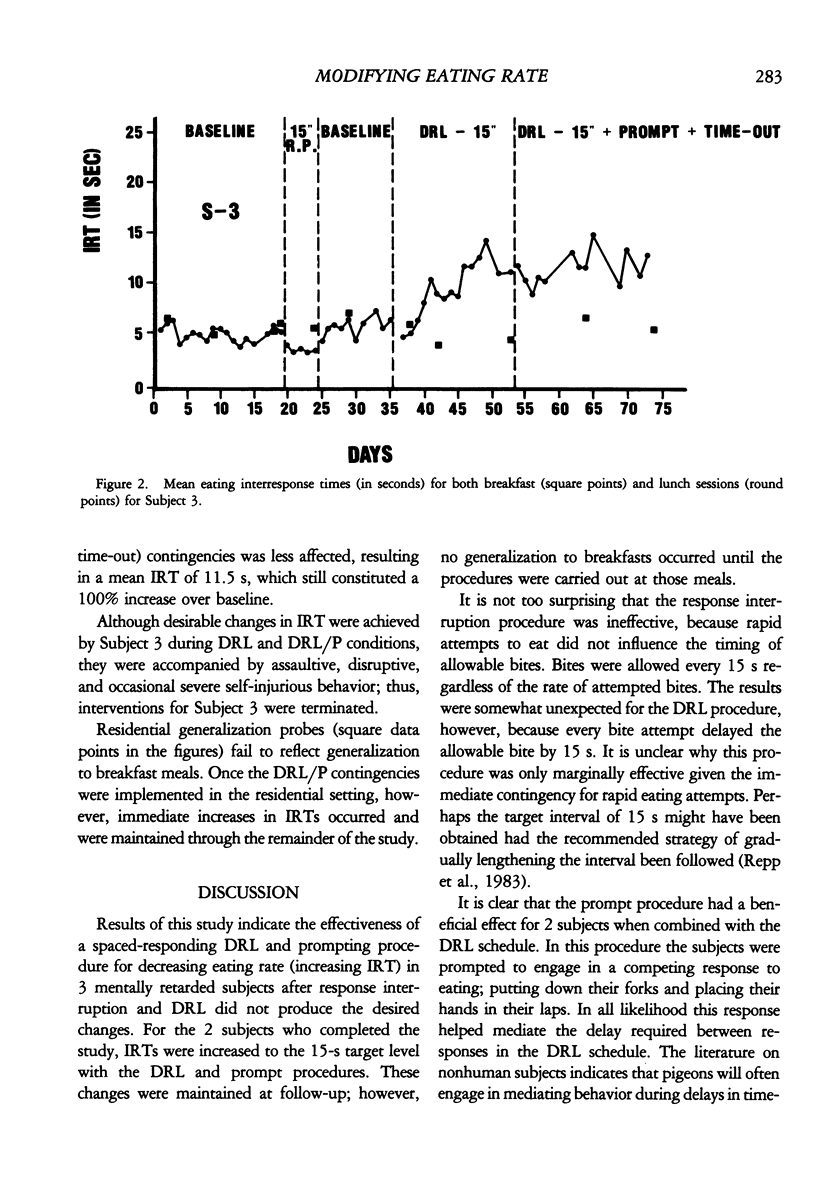
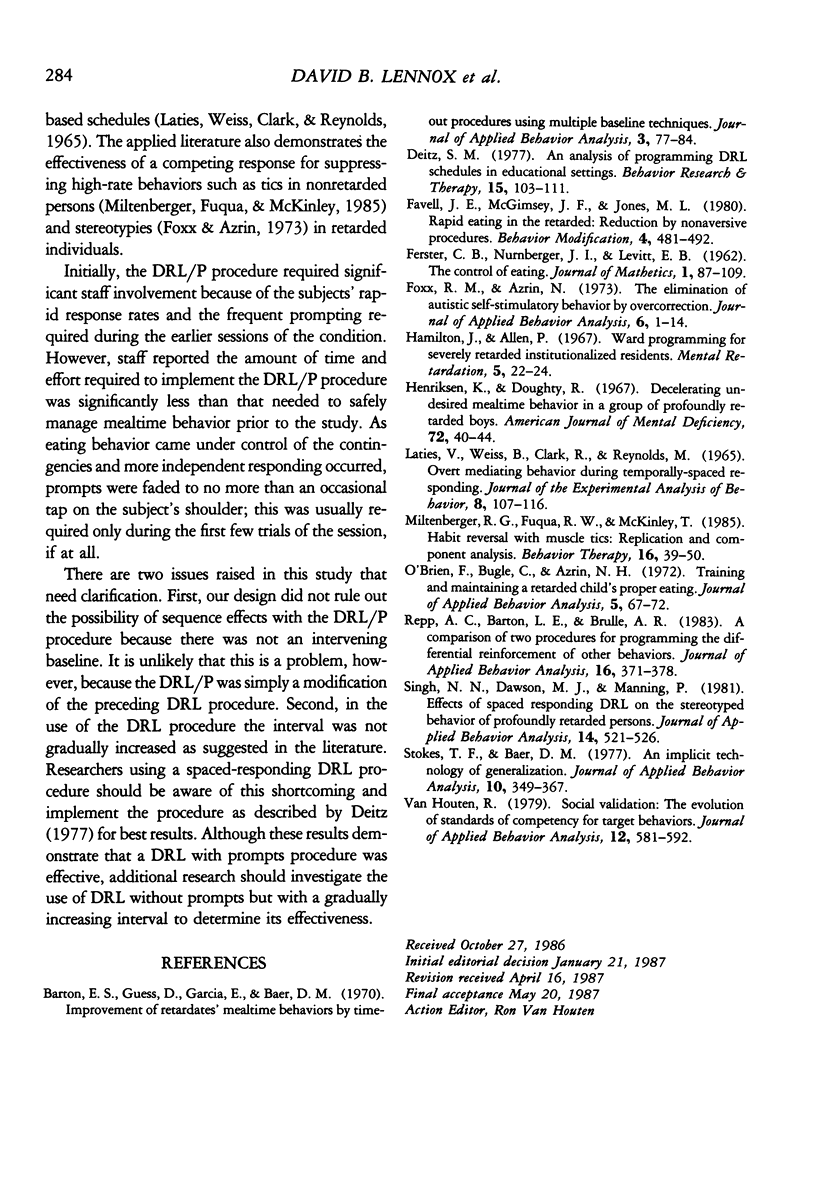
Selected References
These references are in PubMed. This may not be the complete list of references from this article.
- Barton E. S., Guess D., Garcia E., Baer D. M. Improvement of retardates' mealtime behaviors by timeout procedures using multiple baseline techniques. J Appl Behav Anal. 1970 Summer;3(2):77–84. doi: 10.1901/jaba.1970.3-77. [DOI] [PMC free article] [PubMed] [Google Scholar]
- Foxx R. M., Azrin N. H. The elimination of autistic self-stimulatory behavior by overcorrection. J Appl Behav Anal. 1973 Spring;6(1):1–14. doi: 10.1901/jaba.1973.6-1. [DOI] [PMC free article] [PubMed] [Google Scholar]
- Hamilton J., Allen P. Ward programming for severely retarded institutionalized residents. Ment Retard. 1967 Dec;5(6):22–24. [PubMed] [Google Scholar]
- Klesges R. C., Coates T. J., Brown G., Sturgeon-Tillisch J., Moldenhauer-Klesges L. M., Holzer B., Woolfrey J., Vollmer J. Parental influences on children's eating behavior and relative weight. J Appl Behav Anal. 1983 Winter;16(4):371–378. doi: 10.1901/jaba.1983.16-371. [DOI] [PMC free article] [PubMed] [Google Scholar]
- LATIES V. G., WEISS B., CLARK R. L., REYNOLDS M. D. OVERT "MEDIATING" BEHAVIOR DURING TEMPORALLY SPACED RESPONDING. J Exp Anal Behav. 1965 Mar;8:107–116. doi: 10.1901/jeab.1965.8-107. [DOI] [PMC free article] [PubMed] [Google Scholar]
- O'brien F., Bugle C., Azrin N. H. Training and maintaining a retarded child's proper eating. J Appl Behav Anal. 1972 Spring;5(1):67–72. doi: 10.1901/jaba.1972.5-67. [DOI] [PMC free article] [PubMed] [Google Scholar]
- Singh N. N., Dawson M. J., Manning P. Effects of spaced responding DRL on the stereotyped behavior of profoundly retarded persons. J Appl Behav Anal. 1981 Winter;14(4):521–526. doi: 10.1901/jaba.1981.14-521. [DOI] [PMC free article] [PubMed] [Google Scholar]
- Stokes T. F., Baer D. M. An implicit technology of generalization. J Appl Behav Anal. 1977 Summer;10(2):349–367. doi: 10.1901/jaba.1977.10-349. [DOI] [PMC free article] [PubMed] [Google Scholar]
- Van Houten R. Social valdiation: the evolution of standards of competency for target behaviors. J Appl Behav Anal. 1979 Winter;12(4):581–591. doi: 10.1901/jaba.1979.12-581. [DOI] [PMC free article] [PubMed] [Google Scholar]


